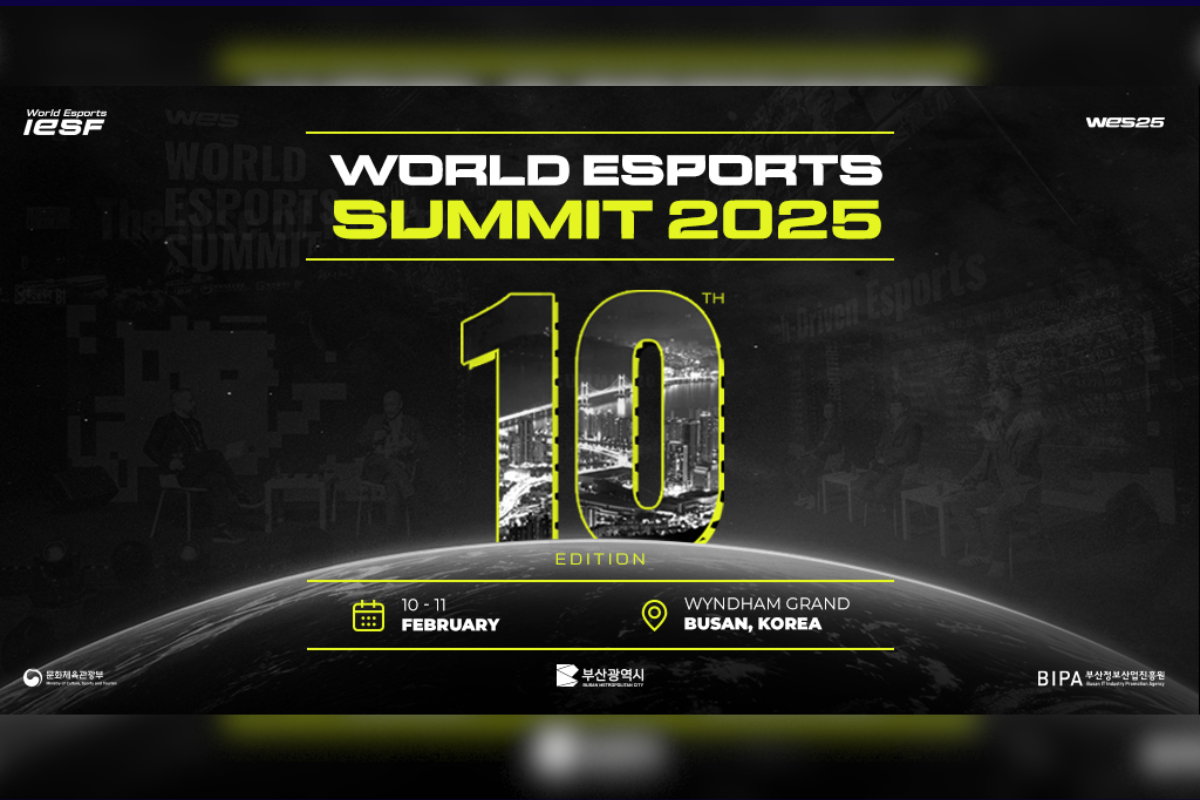Asia
Three more provinces unveil newly-built evacuation facilities from PAGCOR

Three municipalities that are frequented by various calamities recently unveiled the Multi-Purpose Evacuation Centers (MPECs) funded by the Philippine Amusement and Gaming Corporation (PAGCOR).
The towns of Binmaley, Pangasinan; Tagudin, Ilocos Sur; and the city of San Fernando, Pampanga held the inauguration rites of the PAGCOR-funded MPECs on June 24 and June 27, 2022. Each recipient local government unit received P50 million for the construction of two-storey emergency structures, which were completed in over a year.
Said MPECs boast of amenities like kitchen and storage areas, toilet and shower rooms for male and female, and lactating rooms for nursing mothers, among others. They are designed to augment the recipient municipalities’ existing emergency facilities such as schools and basketball courts.
PAGCOR Chairman and CEO Andrea Domingo led the inauguration of the brand-new evacuation center in San Fernando City. The PAGCOR chief also inspected with Bacolor town Mayor Eduardo Datu the newly-built three-storey, 15-classroom school building that the agency funded in Bacolor Central Elementary School (BCES).
“PAGCOR’s effectiveness in regulating gaming resulted in the proper collection of revenues. So during our six years in office, we were able to record more than P300 billion, of which P234 billion went directly to the government and mandated beneficiaries while the remainder went to our social responsibility projects,” Domingo stated.
Meanwhile, PAGCOR President and COO Alfredo Lim, who unveiled the MPECs in Tagudin and Binmaley, said that the newly-built facilities were built in accordance with the specifications and requirements provided by the Department of Public Works and Highways. “Ang mga evacuation center na ito na magiging sanggalan at proteksyon ng ating mga kababayan upang sila ay protektado sa ano mang kalamidad na tatama sa kanilang lugar,” Lim said.
Tagudin Mayor Roque Versoza, Jr. said the new evacuation facility will not only help ensure the safety of his constituents during extreme calamities and other emergency situations but will also provide extra space where they can hold various programs and activities.
Tagudin local Gema Sanchez, 44, is also grateful for the new evacuation facility donated by PAGCOR. She recalled how locals like her feared for their lives when Typhoon Lawin ravaged their town in 2016. “Natutuwa po kami na nagkaroon dito sa aming bayan ng isang mas malapit na evacuation center kasi po kapag may bagyo, malayo po ang pinaglilikasan namin. Noong huling binagyo kami, kahit mataas ang bahay naming, eh inabot pa rin ng agos ng tubig mula sa dagat na may kasamang buhangin at kahoy. Hiwa-hiwalay po kaming lumikas noon ng pamilya ko dahil kinakailangang may maiwan sa aming bahay dahil mga alaga naming baboy at manok,” she narrated.
Apart from inaugurating the MPEC in Tagudin, PAGCOR also distributed hundreds of food and non-food relief items to indigent families who were severely affected by the previous typhoon that hit the town.
Meanwhile, Binmaley Mayor Simplicio DL. Rosario stated that the brand-new evacuation structure they received from PAGCOR will be instrumental in their promotion of different projects that seek to improve the lives of the town’s residents. “The structure that we received will not only serve as an evacuation facility but also as venue where we will conduct some activities that will boost the welfare of our people,” he explained.
The state-run gaming firm has allotted a total of P3.5 billion for the construction of MPECs in 76 approved sites nationwide. Aside from Ilocos Sur and Pangasinan, MPECs in Tarlac, Albay, Capiz and the towns of Sagñay, San Jose, Tigaon and Ocampo in Camarines Sur have been completed. #
Powered by WPeMatico
Asia
Books on Wheels: DigiPlus Foundation Brings Mobile Library to Boost Literacy Among Aurora’s Young Learners

DigiPlus Foundation continues to champion inclusive learning by empowering young learners in Aurora Province through a meaningful partnership with youth-led volunteer group Sikat Aurora.
Following six months of sustained support for Sikat Aurora’s Abot Ko ang Libro storytelling initiative, an activity that brings reading sessions and learning spaces closer to children in local communities, DigiPlus Foundation and GameZone surprised the group with a new mobile library designed to support their mission beyond a single location. The mobile library will allow Sikat Aurora volunteers to roam across Aurora Province, reaching more children with books, learning materials, and storytelling activities.
The donation strengthens Sikat Aurora’s efforts to uplift nonformal education as a vital complement to classroom learning, especially for children with limited access to books and educational resources. By taking learning on the road, the mobile library transforms storytelling sessions into a scalable, sustainable program that can reach far-flung communities across the province.
RJ Belen, Founder of Sikat Aurora, said: “We are truly grateful for the trust and support of DigiPlus Foundation. This mobile library will help us reach more young learners in Aurora and strengthen our mission of nurturing a love for reading. Through nonformal education, we help support what children learn in school and create spaces where learning feels accessible, enjoyable, and empowering.”
“This will allow us to bring learning to children who may not always have access to educational materials, helping them build confidence and curiosity as they grow.”
Neil Orillaneda, Program Manager for Technology Education of DigiPlus Foundation, said: “Our goal is simple: no learner left behind. By supporting initiatives like Sikat Aurora’s mobile library, we help bridge learning gaps and ensure that children, regardless of location or circumstance, have access to educational resources that support their growth.”
The mobile library donation reflects DigiPlus Foundation’s belief that learning happens not only inside classrooms, but also within communities through shared stories, accessible resources, and partnerships that place children at the center of development.
The mobile library donation is part of a Php 1-million contribution from GameZone during the International Series Philippines (ISP), channeled through DigiPlus Foundation to support a range of community initiatives nationwide. Beyond education, the donation also funds livelihood support for local weavers, health program assistance for the LGBTQ+ community, aid for persons with disabilities in Cebu, and flood rescue equipment for Manila, reflecting a holistic approach to community development that addresses education, health, inclusion, and disaster preparedness.
The post Books on Wheels: DigiPlus Foundation Brings Mobile Library to Boost Literacy Among Aurora’s Young Learners appeared first on Americas iGaming & Sports Betting News.
Asia
World Esports Summit Celebrates Its 10th Edition in Busan

The World Esports Summit returns to Busan, South Korea, for its 10th edition, taking place on 10–11 February 2025.
Hosted at the Wyndham Grand Busan, the Summit will bring together 40+ speakers from the international esports ecosystem, including representatives from federations, publishers, global brands, sports organizations, technology companies, and public institutions.
Over the past decade, the World Esports Summit has provided a platform for dialogue and cooperation among stakeholders shaping the world of esports. The 2025 edition will continue this role, offering space for discussion on current developments, industry challenges, and future directions.
The Summit will feature contributions from a wide range of organizations, including Alibaba, FIBA, FIFAe, Tencent, Moonton, NetEase, FIA, Sportradar, EFG, Good Game, Telekom, among others.
Across two days, participants will take part in keynote sessions and panel discussions addressing topics such as esports governance, international collaboration, industry development, integrity, and the continued convergence of esports and traditional sports.
Further information on the program, speakers, and registration is available on the official World Esports Summit website.
The post World Esports Summit Celebrates Its 10th Edition in Busan appeared first on Eastern European Gaming | Global iGaming & Tech Intelligence Hub.
Asia
Insurgence Gaming Company Expands Grassroots Vision with MOBA Legends 5v5 Discord Play-Ins

Following the launch of its inaugural women-focused VALORANT tournament La Imperia, the Insurgence Gaming Company has announced its second competitive initiative, MOBA Legends 5v5 Discord Play-Ins, a series of open community tournaments created to make organised competition more accessible to emerging players.
While La Imperia introduced a visibility-led invitational format, the MOBA Legends 5v5 Discord Play-Ins take a different approach. The series is built around open participation and will be hosted entirely online, with all tournament operations managed through Discord. This allows teams from across India to compete in a structured setting without the restrictions often associated with invite-only events.
The Play-Ins are designed as a starting point for players and teams who want to experience organised competition. Matches will be played in a 5v5 MOBA Draft Pick format, with scheduling, match reporting, and communication handled through dedicated Discord channels.
The announcement continues Insurgence Gaming Company’s early focus on grassroots esports. The company was created to address gaps in India’s competitive ecosystem, particularly at the amateur and semi-professional level where consistent tournament opportunities are still limited.
Speaking on the launch, Jasper Shabin, Founder of the Insurgence Gaming Company, said: “With La Imperia, we focused on visibility. With the Discord Play-Ins, the focus shifts to access. Competitive players need regular places to play, improve, and test themselves, not just one-off tournaments. MOBA Legends 5v5 is one of the most accessible competitive titles on mobile, which makes it a strong fit for an open, community-driven format.”
Beyond competition, the Discord Play-Ins are also intended to build a sense of continuity. Players will have access to channels dedicated to match coordination, tournament updates, and post-game discussion, helping teams stay connected beyond a single tournament run.
With the MOBA Legends 5v5 Discord Play-Ins, the Insurgence Gaming Company continues to shape its identity around community-first formats, pairing visibility-led initiatives like La Imperia with open competitive pathways that support long-term grassroots growth in Indian esports.
The post Insurgence Gaming Company Expands Grassroots Vision with MOBA Legends 5v5 Discord Play-Ins appeared first on Eastern European Gaming | Global iGaming & Tech Intelligence Hub.
-

 ACMA6 days ago
ACMA6 days agoACMA Blocks More Illegal Online Gambling Websites
-

 Aurimas Šilys6 days ago
Aurimas Šilys6 days agoREEVO Partners with Betsson Lithuania
-

 CEO of GGBET UA Serhii Mishchenko6 days ago
CEO of GGBET UA Serhii Mishchenko6 days agoGGBET UA kicks off the “Keep it GG” promotional campaign
-

 Canada5 days ago
Canada5 days agoRivalry Corp. Announces Significant Reduction in Operations and Evaluation of Strategic Alternatives
-

 Latest News5 days ago
Latest News5 days agoTRUEiGTECH Unveils Enterprise-Grade Prediction Market Platform for Operators
-

 Central Europe6 days ago
Central Europe6 days agoNOVOMATIC Once Again Recognised as an “Austrian Leading Company”
-

 Acquisitions/Merger5 days ago
Acquisitions/Merger5 days agoBoonuspart Acquires Kasiino-boonus to Strengthen its Position in the Estonian iGaming Market
-

 Firecracker Frenzy™ Money Toad™5 days ago
Firecracker Frenzy™ Money Toad™5 days agoAncient fortune explodes to life in Greentube’s Firecracker Frenzy™: Money Toad™



















